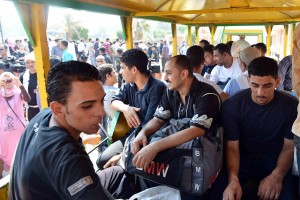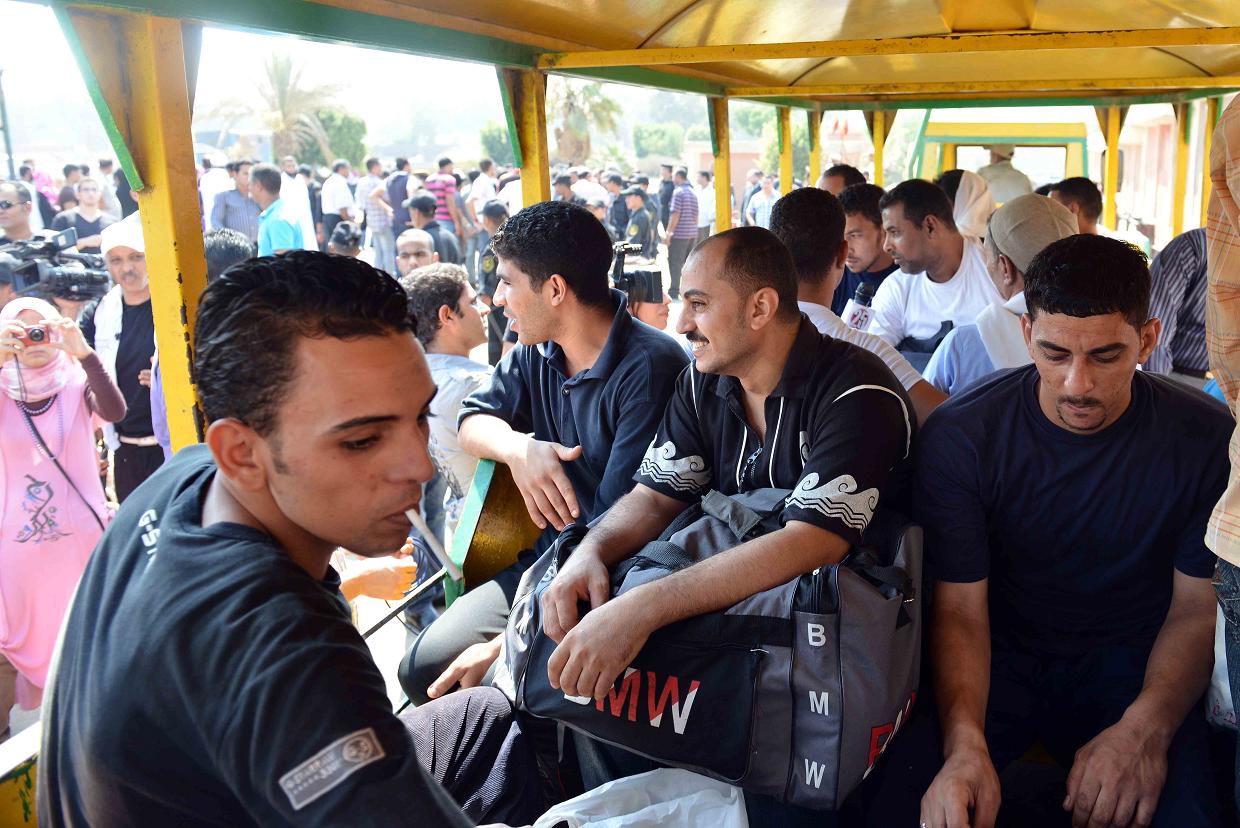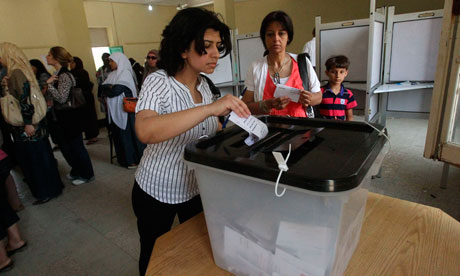
Mohamed Omar
Morsy’s decision on Monday to release political detainees has been warily welcomed by human rights activists.
“The law includes any person who has committed a felony or crime for the purpose of supporting the revolution,” Gad Allah, Morsy’s legal advisor, told Daily News Egypt, adding that the law “doesn’t differentiate between a civilian and a military man” as long as the offense was committed between 25 January 2011 and 30 June.
Gad Allah stated that the decree doesn’t include those who have been detained since January 2011 for offenses not related to the revolution such as arms possession, theft, robbery, rape etc…
“How can you tell the difference between a revolutionary and anyone else?” said Maha Ma’moun from the No Military Trials for Civilians group. She said that most of those who were tried by the military after the revolution were just randomly stopped and checked on the street, then arrested without good cause.
If this person happened to have a knife on him, for example, he would be tried by the military and sentenced to several years in prison. People like this may be classified as a criminal, not a revolutionary.
“The law is good, it’s good that some of the people may be released but there is no guarantee that all of them will be released. We had hopes that there would be retrials,” Ma’moun explained.
Human rights movements such as the No Military Trials movement call for the release of all civilian detainees held in military prisons or subjected to military tribunals, even those arrested for crimes which are not politically instigated; and having them retried in civilian courts.
According Ma’moun, official records claim over 1100 civilians are still in prison after having been tried in military courts. The number excludes several revolutionaries tried by ordinary judiciary.
The Hisham Mubarak Law Centre (HMLC) released a statement Tuesday welcoming the law saying it expresses the presence of a serious political will to deal with the issue. Nevertheless, HMLC had a few concerns about the about limitations of the law which might prevent several prisoners from receiving the amnesty.
Those prisoners include, all those tried in extra-judiciary courts from 1981 to 2011, those tried on the background of events that took place after Morsy’s inauguration, or any civilians and minors subjected to extra-judiciary courts.
The decree necessitates that the public prosecutor and the military prosecutor publish a list of the names of those included in the amnesty in the Waqa’e Masreya newspaper, a supplement of the official gazette, as well as a couple of widely circulating newspapers within a month from the issuance of the law.
“The decree also gives a chance to all those whose names aren’t included in the list, yet believe they fall under the criteria of deserving amnesty to file appeals to the public prosecutor or the military prosecutor within a month after the issuance of the list,” Gad Allah added, explaining the appeals would then be reviewed by a committee headed by a deputy of the head of the Court of Cassation, alongside a judge from the Cairo Appeals Court and another from the Supreme Court of Military Appeals.
The date for releasing the detainees has not been specified, yet Gad Allah assured the decree states the release of those on the list should be within a maximum of a month. “It is the appeals that could be more time consuming,” Gad Allah said.
Former head of the State Council, Hamed Al-Gamal, told state-owned Al-Ahram the decree is unconstitutional, due to the nullity of Morsy’s decision to cancel the Supreme Council of Armed Forces’ (SCAF) constitutional decree, released in June 2012. Morsy’s decision handed over legislative power from SCAF to himself.
“It is a 100 per cent constitutional,” said constitutional law expert and law professor at Cairo University, Ra’fat Fouda. “It is within the president’s power to grant amnesty when the president has both the legislative and executive powers.”
Fouda added “full amnesty is only granted through the issuing of a law; laws are issued by the People’s Assembly but there is no People’s Assembly so the president can issue the law. This is according to the constitutional declaration and is consistent with all past constitutions.”
Research assistant at the Faculty of Education and one of those arrested in the Cabinet clashes, Hend Nafe’, opposed the decree.
“An amnesty would not permit you to have rehabilitation and demand your rights,” Nafe’ tweeted, “and accepting amnesty is proof that you are indeed indicted.”
A committee convened by Morsy upon his inauguration to review the cases of civilians facing military trials had been responsible for the release of 630 detainees before it ended its mission in early September.



